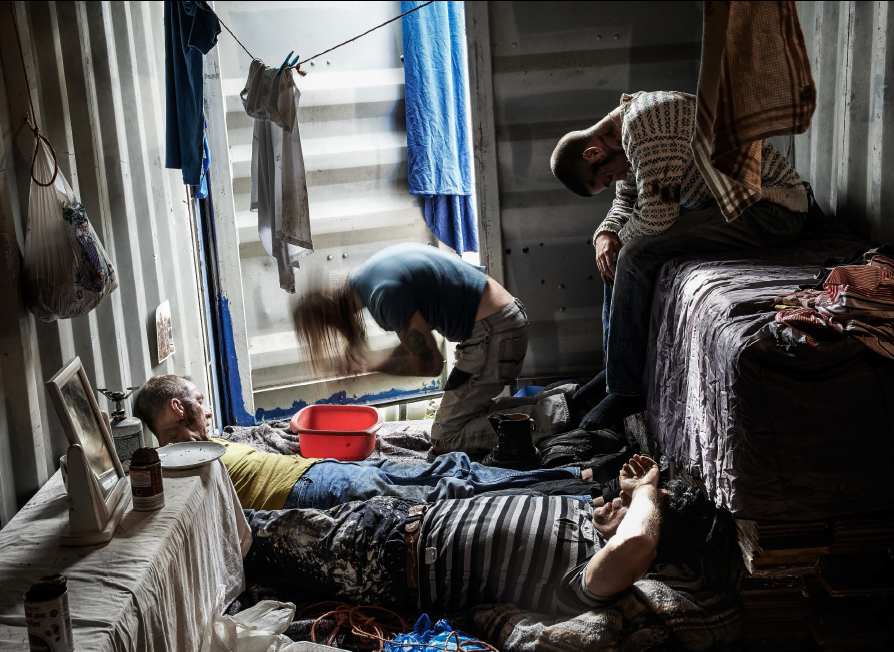Hundreds of modern slavery victims pushed into poverty after escaping abuse, report finds

Hundreds of modern slavery victims are falling into poverty after escaping from their traffickers, new figures show, fuelling concerns that the government is failing to support and protect people who have been exploited.
Men who have been rescued from forced labour or sexual exploitation are surviving on “cheap biscuits” and unable to buy clothes, placing them at risk of being re-trafficked at a time when they should be receiving protection.
The findings come days after The Independent revealed that asylum-seeking modern slavery victims were being drawn back into exploitation as a means of survival after their weekly subsistence rate was reduced from £65 to £37.95. This reduction is set to be rolled out to all modern slavery victims “in due course”.
The government identifies and supports victims of trafficking through the National Referral Mechanism (NRM), which requires the Home Office to provide support to aid recovery, which it does through subcontracted charities.
A total of 6,076 people were referred to the NRM in the year to June 2018 – of which around 4,000 are estimated to have been men.
The new research, based on 218 male victims supported by London-based charity Hestia, which is subcontracted by the government to care for victims, shows that more than half (55 per cent) could never afford to buy food, with one telling researchers: “I just have to eat a little less.”
The vast majority (88 per cent) relied on food banks, donations, support from their local church or handouts from friends in order to survive, while one in seven never had money to buy clothing.
Hestia said men who received the higher subsistence rates suffered less from poverty and were less likely to report being dependent on food banks and donations to cover daily essentials – indicating that the recent cuts in support have had a detrimental impact.
The report states that two men on the lower subsistence rates said they had resorted to illegal work in order to get by, with one getting paid £4.50 an hour and one getting paid £4 a shift.
The findings also show that half of male victims had spent time in prison or detention before being identified as a potential victim, for reasons often linked to their exploitation – constituting a breach of modern slavery law.
Last month, The Independent revealed that female victims of human trafficking were being routinely held in prison in breach of the law because of a “disturbing” government failure to identify exploitation.
Patrick Ryan, chief executive of Hestia, said: “The experiences of the men we are supporting are horrifying. Psychological manipulation, violence and rape were regularly used by their abusers to break their spirits and stop their escape.
“It is only recently that the true magnitude of the exploitation of men for modern slavery has begun to emerge. However, the availability of support has yet to catch up with the needs of these highly traumatised men.
“We need the public, private and third sector to better understand these needs and put in place the right support so they can recover from their trauma and go on and live the lives they dream of.”
Kate Roberts, head of the Human Trafficking Foundation, told The Independent: "This powerful and important report evidences the too often ignored vulnerabilities of men to trafficking and modern slavery and the too often inadequate response when they ask for help.
"There is a clear need for improved identification combined with support services which respond to individual needs, while guaranteeing decent minimum standards of care.
"This must include subsistence rates which meet victim’s material needs, allowing them to travel to access services, to buy nutritious food, clothes, to contact their families, meet their friends and to reintegrate. No one can recover while effectively destitute."
In response to the report, a government spokesperson said: “Modern slavery is a barbaric crime that destroys the lives of its victims, which is why we introduced the world-leading Modern Slavery Act in 2015 to address this crime.
“The Rough Sleeping Strategy sets out an ambitious £100m package which will help support those sleeping rough now as well as working to end it once and for all.
“We recognise that victims of modern slavery are vulnerable to becoming rough sleepers, which is why we have extended the period of time potential victims receive support to help these people ensure they have safe and secure accommodation."

 Yahoo News
Yahoo News 
